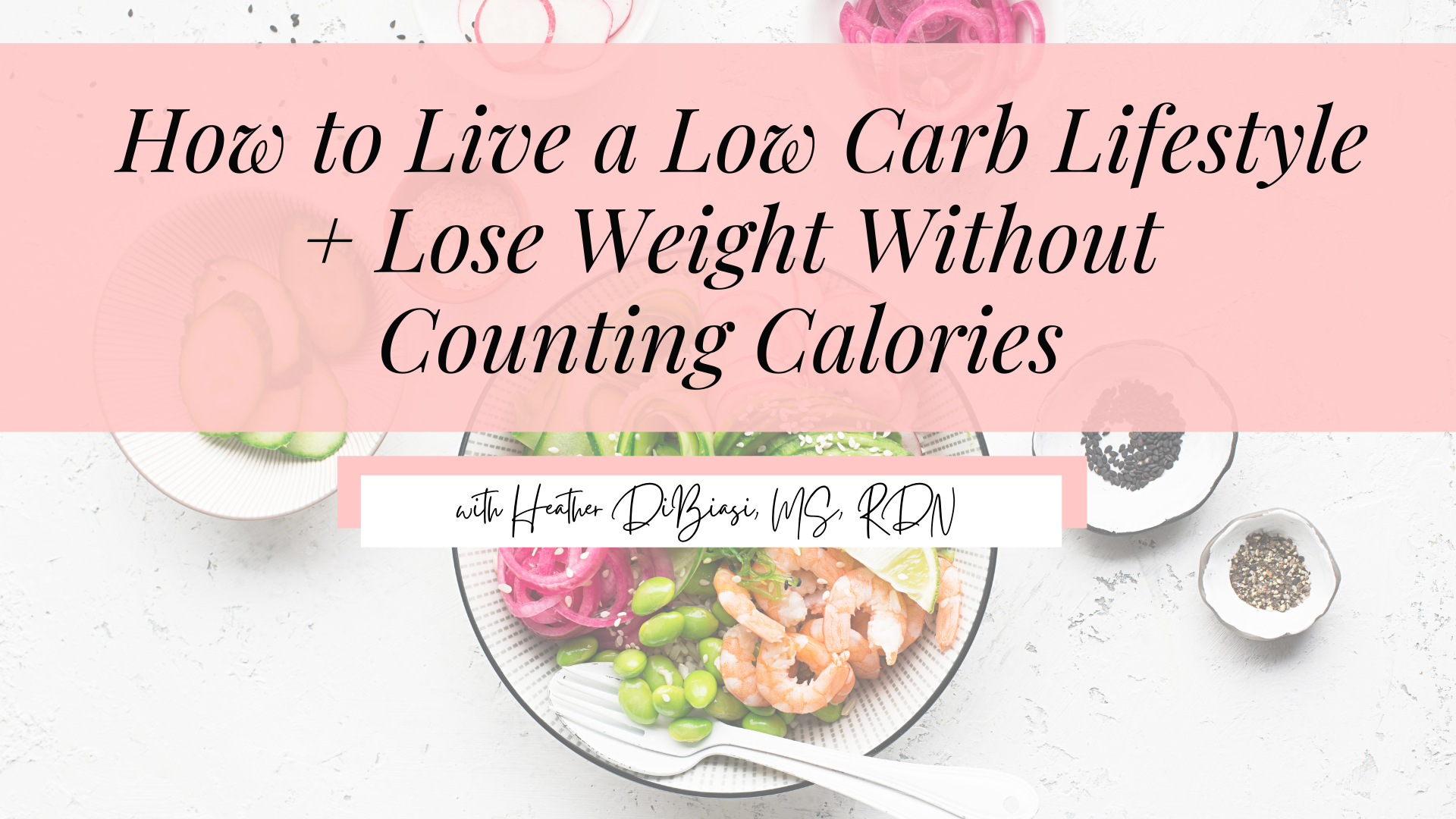Ketogenic diet 101 coming atcha in this article. The ketogenic diet is a high fat, moderate protein, low carb diet. In this article I am going to be completely breaking down everything you want to know about the keto diet. Who is it for? Who is it not for? Why is everyone talking about it?
Ketogenic diet 101: The history of the ketogenic diet
The ketogenic diet has been trending for weight loss and cognitive function recently. This diet was originally developed in 500 BC to treat children with epilepsy; however, it wasn’t introduced to modern physicians as a treatment until about 1920’s (1).
It has gained popularity when the fitness industry saw it was also a great way to burn fat fast. Which, yes can be true. But does that mean this is what we should all be using for weight loss or overall wellness? Well you’re going to have to read this post to find out 😉
My goal is not to pursued you either way but rather weed through the BS and giving you the FACTS.
Ketogenic diet 101: What exactly is ketosis?
Ketosis is a metabolic process where the body breaks down fat into ketone bodies (aka ketones) that is usable source of energy for the body. There are two ways to get into ketosis; one is more well know which is when you eat a low carbohydrate, high fat, moderate protein diet that mimics fasting. And the other way is to actually fast or have a VERY low calorie diet.
Most people don’t want to eat a very low calorie diet for obvious reasons. So a diet that can mimic fasting, the keto diet, is typically the way someone would go to get these affects.
FYI: There is something called diabetic ketoacidosis which is a condition that can occur with uncontrolled diabetes. This is when someones with diabetes has high blood sugar levels and ketone at the same time. That is not what we are talking about in this post. In this post we are only talking about nutritional ketosis, which is completely different.
Ketogenic Diet 101: The keto diet
The ketogenic diet is switching your bodies metabolism to utilize fat for its main source of fuel instead of carbohydrates. There are 5 different types of ketogenic diets, one more strict than the next.
Classic Ketogenic Diet
This includes a macronutrient ratio of 4:1 of fat to protein and carbs meaning for every 4 grams of fat you need 1 gram of protein + carbohydrates (to reiterate, both together not one of each).
Modified Ketogenic Diet
This is a little more liberal than the classic ketogenic diet with a 3:1 ratio of fat to protein + carbohydrates.
MCT Oil Diet
This diet contains a high amount of medium chain triglycerides (MCTs), which are a specific type of fat that get absorbed differently than long chain triglycerides. They provide a quick source of energy that gets absorbed directly into the blood instead of through the lymphatic system. This version allows for more protein and carbohydrates than the classic and modified ketogenic diet.
Modified Atkins
This version of the diet focuses on emphasizing fat and has no protein restriction. It also limits carbohydrates and carbohydrates are always to be consumed with fat.
Low Glycemic Diet
This diet may not produce ketosis; however, it focuses on foods that do not spike blood sugar too high including fats, protein, and complex carbohydrates bound to fiber.
Ketogenic diet 101: Using fat for fuel
These diets are all similar in the sense that they all focus on a very low net carbohydrate (total carbohydrates – fiber), very high fat, and moderate protein. This combination is important to get into this state of nutritional ketosis.
The goal is to simply not consume anything that can turn into glucose (blood sugar), which is the byproduct of carbohydrates as well as deplete any stored glucose in the body (glycogen). This will force your body to utilize its own body fat and fat from the diet as fuel.
The body will always use glucose over ketones if it is available, which is also why the diet has to be moderate protein.
If someone has more protein than they need your body will start to turn that protein into glucose during a process called gluconogensis. This will kick you right out of ketosis. Most people following the diet for wellness or weight loss are using a modified version of the diet (the modified Atkins or low glycemic).
It’s important to note that you will never fully deplete the glucose in your body on a ketogenic diet. Imagine it this way. I f you have two light dimmers in your house next to each other niether of them will fully be 100% on or 100% off at one time. Rather one is on very high and the other is on very low at a given time.
Basically, absence of carbohydrates forces your body to run on ketones and ketones provide energy from fat; therefore, the diet has to be VERY low carb, moderate protein, and high fat to actually be in ketosis.

Hormones
Hormones are key players here when it comes to ketosis.
Insulin
This hormone released in the presence of glucose in the bloodstream. This is an “anabolic hormone” meaning it’s a storage hormone. When this hormone is elevated it stimulates the uptake of glucose, amino acids and other nutrients into cells. It also helps to build muscle and stores carbohydrates as glycogen in the liver and muscles. Any extra carbohydrates that cannot be stored in those places will be stored as fat.
Glucagon
This hormone is the total opposite of insulin. It breaks down stored glycogen when we our body needs energy, breaks down fat and may actually be beneficial for our cholesterol levels.
Both these hormones are important and they are both necessary to create homeostasis (or balance) in the body. These are regulated by blood sugar. When blood sugar gets too high insulin is released to bring it back down. When blood sugar dips too low glucagon is released to bring it back up.
Keotgenic diet 101: How Do You Know If You Are In Ketosis?
Being in ketosis will produce elevated ketone levels which are present in blood, urine and breath. Ketosis would be defined as having blood ketone levels greater than 0.5 mmol/L.
Ketogenic diet 101: Healthy Vs. Non Healthy
Like with anything else, there is a healthy and a not so healthy way to do it. We now know certain saturated fats are as bad for us as we once thought. However, consuming a diet extremely high in heavy cream, cheese, bacon, and inflammatory oils is not healthy. Especially if this diet is lacking non-starchy veggies and fiber.
Following a ketogenic diet emphasizing olive oil, avocado, avocado oil, nuts and nut butters, seed and seed butters, coconut, grass finished meats, wild fish and focusing on getting some fiber from non-starchy vegetables is a much more nutritious way to approach it, especially when not on the diet for therapeutic reasons.
Theraputic Treatment with Ketogenic Diet
There are many conditions where a ketogenic diet might be used as a therapeutic approach to treating symptoms.
Epilepsy
A ketogenic diet along with brain surgery are the only known cures for epilepsy. 50% of people with epilepsy have a 50% reduction in symptoms and 25% of them no longer have seizures when following a ketogenic diet (2).
Glut 1 Deficiency (Glut1D) is a rare, yet treatable, disorder causes by a defect of cerebral energy metabolism where there is impaired glucose transport into the brain. This condition can be exclusively treated with a high fat carbohydrates restricted ketogenic diet.
Parkinson’s
This disease is a disorder of the central nervous system (CNS) that results from deterioration of dopamine-producing cells the the brain. There have been many case studies where a ketogenic diet has improved symptoms in these patients.
The theory is that ketones produced by a ketogenic diet may be able to bypass this defect and use a different mechanism to provide energy to the brain. Not many studies have been conducted on this diet; however, one study compared a low fat diet vs. a ketogenic diet for patients with parkinson’s disease. They found that they both significantly improved motor and non-motor symptoms. Although, the ketogenic diet showed a greater improvement in non-motor symptoms (3).
Dementia / Alzheimer’s
Also being known as type-3 diabetes, is caused by damage to the neurons in the brain. There is no cure for this disease as of right now; however, some research suggests that the ketogenic diet and the Mediterranean diet may help protect the brain and slow down the progression of the disease.
Cancer
Since certain cancers feed off sugar for survival and growth, there have been case studies of starving these cancer cells of glucose (blood sugar) to prevent the spread and even in some cases shrink tumors.
Type 2 Diabetes
There has been mixed reviews in both animal and human studies on whether or not a ketogenic diet is beneficial for insulin resistance; however, I have seen some promising research for a ketogenic diet being very beneficial for blood sugar control. One study (4) that examined the effects of a ketogenic diet on glycemic control in diabetics showed that the diet was very effective in lowering blood glucose and most participants were able to reduce or discontinue diabetes medications.
Obesity
Considering obesity is an epidemic in the United States right now and doesn’t seem to be getting better, it is useful to explore the effectiveness of different therapeutic diets that may help some individuals lose weight. Of course, there is the question of whether or not this diet is sustainable (which we will get to later), many studies show that a ketogenic diet can reduce body weight and body mass index (BMI).
A meta-analysis of randomized controlled studies (a summary of some of the best quality studies out there) found that when comparing a ketogenic diet to a low fat diet for 12 months or longer, the ketogenic diet had a significantly greater reduction in body weight compared to a low fat diet (5).
Downsides
Keto Flu Symptoms
The keto flu is a cluster of symptoms that some may experience when transitioning into a ketogenic diet; however, symptoms for every person may vary and some people may not have any symptoms at all. Some of these symptoms can present as mild or severe and include weakness, headache, stomach pain, muscle soreness/cramps, irritability, difficulty sleeping poor concentration, dizziness, constipation, diarrhea, and sugar cravings.
Keto Flu: Why does this happen?
This happen because your body is basically going through carbohydrate withdrawals; it’s not adapted to burning fat for fuel yet. Our bodies preferred source of fuel will also be glucose over ketones.
Glucose is like a car running on gas as ketones are like a car running on battery operation (your running off your own bodies fuel). As long as excess glucose is left in the body, which can take days or even weeks to deplete, your body is initially unsure of where it’s suppose to get its energy from.
After this period of time where glucose is depleted and no glucose is coming in from the diet, the body recognizes it needs another source of fuel to survive.
Between the period of time where you body is not getting enough glucose and doesn’t realize it needs ketones yet you will start to break down your own body protein to create glucose, which is that process of gluconeogensis, like mentioned earlier. This may not make you feel so well. After you have “adapted” that’s when ketone production from fat sources and dietary fat kicks in and one may start to feel the more beneficial affects of a ketogenic diet.

Haltosis (AKA Bad Breath)
This is chronic bad breath that no mouth wash or tooth paste can disguise.
Why does halitosis happen?
There are 3 ketone bodies produced in the liver during ketosis: acetone*, acetoacetate, B- hydroxybutyrate. The only way to remove any excess ketone bodies not be utilized for energy is through breathe and urine.
*Acetone is the ketone body that produces a “fruity” smell giving the affect of bad breath. Yes acetone is what is in nail polish remover and can be toxic in high amounts. However, it is also a normal byproduct of metabolism and is safe is small amounts like this.
If you are consuming enough water more ketones will be removed during urination and your mouth will not be as dry, which may decrease or prevent this symptom from occurring.
Lipid Profile (Cholesterol)
This seems to be one of the more controversial topics within a controversial topic. We have been told for decades that dietary fat can cause dyslipidemia (abnormal cholesterol level), which is totally not true.
Actually healthy fats like olive oil, avocado, nuts and seeds actually can help improve cholesterol. Still, the question remains if an extremely high fat diet like the ketogenic diet can promote negative affects on blood lipid levels. Before we even get into the research I think it is important to understand that this may vary and can depend on the type of fats being consumed and genetics. Some people are more sensitive to certain types of fat, like saturated fat, than others.
Lipids Panel includes:
LDL: low density lipoprotein
HDL: high density lipoprotein
VLDL: very low density lipoproteins
Triglycerides: type of fat in blood
To simplify, LDL is your “bad” cholesterol and HDL is your “good” cholesterol but unfortunately the human body is not that simple. Even within LDL our bad cholesterol we have “good” LDL and “bad” LDL. Smaller dense LDL particles are much more dangerous than larger fluffier LDL particles which may actually be beneficial for us.
Research on cholesterol levels and the ketogenic diet
A study that observed 10 patients for 10 years on the ketogenic diet (6) found that after 2 years on a ketogenic diet total cholesterol, LDL and HDL decrease. At 5-10 years lipid levels reflected levels when the ketogenic diet was initiated. The researches from this study believe even if dyslipedemia occurs originally on the diet, they may normalize over time.
Another study (7) found similar results in that LDL and triglycerides improve within 3 months and no change within a year. In this study HDL improved within 3 months as well and continued to improve even more throughout the year.
The meta analysis mentioned earlier (5) looking at the ketogenic diet versus a low fat diet also found that LDL and HDL cholesterol both increased; however, the ratio of these two markers may be more important than the specific numbers which this study did not look at. In addition this met analysis (5) also found that blood pressure significantly decreased, which is another marker for cardiovascular health.
This is the analogy I like to use with LDL (bad cholesterol) and HDL (good cholesterol)
Imagine LDL is the dirt on the floor of your arteries and HDL is the cleaner thats going to come in and clean it up. If you have less LDL you need less HDL to clean right? And if you have more LDL your going to need more HDL to clean up. So as long as you have enough cleaners to pick up after the dirt on the floor than you should be ok.
Dietary Cholesterol
When it comes to concerns about dietary cholesterol intake I think this has been debunked awhile ago so I will make this short and sweet. Dietary cholesterol has no affect on our blood cholesterol. Certain saturated fats, trans fats, hydrogenated oils, and vegetable oils that have a negative impact on our cholesterol.
Digestion
The ketogenic diet if not done correctly can be very low in fiber. On average Americans do not consume the recommend amount of fiber per day, which is about 25-30 grams per day. A lot of people on a ketogenic diet find it very difficult to get enough fiber since carbohydrates are in all vegetables, grains, and fruits. Fiber helps with digestions to keep us regular.
Also, carbohydrates help make up the mucus lining in our digestive tract that protects our gut from the rest of our body.

Muscle
Before we dive into this topic, consider this. Whether on a ketogenic diet or not muscle gains happen when, and only when, you are consuming more calories you need in a day. On the contrary, fat loss happens when you are not exceeding your calorie intake and when insulin is not present.
Research on muscle mass and the ketogenic diet
A randomized controlled trial (8) found that the ketogenic diet was effective for significantly decreasing body fat while maintaining muscle mass during an 8 week resistance training program. This study shows that a ketogenic diet may be affective at losing weight with preserving muscle mass.
Many studies (9) showing muscle mass was well preserved in the presence of weight loss. The research on the topic supports that ketone bodies can be muscle sparing during weight loss and may even be protective against muscle breakdown.
There are a few ideas for why this happens. One idea is low blood sugar stimulates adrenaline secretion, which prevents the breakdown on muscle protein. Also, in the presences of low blood sugar, growth hormone is secreted, a hormone that stimulates protein synthesis (building of muscle).

Deficiencies of Vitamins and Minerals
It’s important to understand that anytime you are cutting out an entire food group you need to make sure you are educating yourself on possibly nutrient deficiencies.
Sodium
Ironically, with most people needing to avoid excess salt nowadays, making sure you have enough sodium is important when following a ketogenic diet. Since carbohydrates hold onto water when you eliminate them from your diet you lose a lot of water weight and sodium goes along with it. This is especially important to note for the first few weeks. This is why you will see people following a ketogenic diet put salt on everything. Some side effects of low sodium fatigue, headaches or passing out.
Potassium
Another mineral involved in fluid balance is potassium. Potassium is going to follow sodium and water out of the body while your body tries to maintain proper hydration status. Potassium is found in fruits and vegetables and these foods are typically not keto friendly. Luckily avocado is usually a big player in the ketogenic diet providing 1000mg per avocado. Some side effects of low potassium are muscle cramps, weakness, high blood pressure and constipation.
Magnesium
Magnesium is a mineral involved in over 300 processes in the body. It is involved in muscle relaxation and deficiencies can lead to muscle cramps, constipation, stress and osteoporosis.
Keetogenic diet 101: Benefits
I already spoke about blood sugar control and obesity in the theuraputic diet section so I am not going to repeat those. But I did want to go over some other benefits people report to experience from the diet besides obvious benefits for therapeutic approaches.
Appetite
One of the main reasons I feel a ketogenic diet is so sucess for weight loss is the affects it can have on your appetite.
A study (10) that placed subjects were significantly less hungry on a ketogenic diet than a moderate carbohydrate diet. This study also examined the pleasantness of both diets. Although participants had no significant preference for either diet, the subjects pleasantness improved with the moderate carbohydrate diet and decline with the ketogenic diet in the first three days.
A systematic review (11) found that people were less hungry and had a reduced desire to eat on the ketogenic diet. Hunger management during weight loss can be super beneficial for someone trying to lose weight.
Cognition
To be honest, I could not find much good quality research on healthy indiviudals, or research not conducted on rats, on this topic despite the antidotal reports of a ketogenic diet improving cognition. There was one study (12) that looked at one the effects of one ketogenic meal on cognition in elderly non-demented subjects. The results did show an improvement in executive function, memory and visual attention in the participants; however, one study and one meal is not enough to prove a ketogenic diet will improve cognition in healthy people.

Ketogenic diet 101: Who is it not for?
I would not recommend the ketogenic diet for anyone that is pregnant, has fat malabsorption problems, or has suffered with any kind of eating disorder. Also, if you are just using it for weight loss I highly recommend trying a different approach first. Increasing healthy fats in your diet and decreasing starch for most people can provide a lot of similar benefits than going strict into ketosis.I teach you how to lose weight with a more flexible low carb approach in this article HERE!
Ketogenic diet 101: Who is it for?
This diet may be beneficial for someone with any of the conditions mention above for theraputic purposes. It can also be for someone who wants to experiment with the diet for any other benefits mentioned above; however read below to see what you should consider before trying it.
What do Consider…
There are 3 things to consider when trying to decide if the ketogenic diet is right for you.
Goals
What is your purpose of doing the diet? Is it as a therapeutic approach to treat epilepsy or prevent dementia? Are you trying to lose weight and if so have you tried other alternatives? Do you feel it may help your cognitive function and overall wellness? Or do you want to do it because someone online told you to or your friend said it worked for them? Really understand your motives.
The Pros and Cons
Educating yourself on the pros and cons is extremely important if you are thinking about following a any specific diet. Do your own research and if you decide to go through with it I would highly recommend working with a health care professional that specializes in the diet to make sure you are doing it correctly.
Personality
: Your personality can help you determine if this will be a sustainable diet for you. Sustainability is the hardest part of this diet. It’s a lifestyle change that I have seen work well for some but for others it can cause disordered eating or simply pure misery when it come to food. If you are looking to experiment with a different way of eating and have an open mind about the process, it may be for you.
If you are only wanting to follow it to lose weight but are telling yourself your going to be keto during the week but want some chips and guac on the weekends- this is not for you. And please remember, this is not your religion. If you try and it don’ it you CAN stop doing it! Of course therapeutic approaches are different but for anything you have to follow a lifestyle you love and that makes you feel your best.
* If you want to learn more about the ketogenic diet a great resource is The Charlie Foundation.
I teach the ladies in The Society how to lose weight, manage hunger and decrease cravings with a more flexible low carb approach. CLICK HERE to watch my FREE workshop on How To Lose Weight On Low Carb Without Counting Calories!
References
(1) Wheless, J. W. (2008). History of the ketogenic diet. Epilepsia, 49 Suppl 83-5. doi:10.1111/j.1528-1167.2008.01821.x
(2) C. (2018, April 25). Can Epilepsy Be Cured Through Diet? Retrieved from https://charliefoundation.org/keto-for-epilepsy/
(3) Phillips, M. L., Murtagh, D. J., Gilbertson, L. J., Asztely, F. S., & Lynch, C. P. (2018). Low-fat versus ketogenic diet in Parkinson’s disease: A pilot randomized controlled trial. Movement Disorders: Official Journal Of The Movement Disorder Society, doi:10.1002/mds.27390
(4)Yancy, W. J., Foy, M., Chalecki, A. M., Vernon, M. C., & Westman, E. C. (2005). A low-carbohydrate, ketogenic diet to treat type 2 diabetes. Nutrition & Metabolism, 234.
(5)Bueno, N. B., de Melo, I. V., de Oliveira, S. L., & da Rocha Ataide, T. (2013). Very-low-carbohydrate ketogenic diet v. low-fat diet for long-term weight loss: a meta-analysis of randomised controlled trials. The British Journal Of Nutrition, 110(7), 1178-1187. doi:10.1017/S0007114513000548
(6) Heussinger, N., Della Marina, A., Beyerlein, A., Leiendecker, B., Hermann-Alves, S., Dalla Pozza, R., & Klepper, J. (2017). 10 patients, 10 years – Long term follow-up of cardiovascular risk factors in Glut1 deficiency treated with ketogenic diet therapies: A prospective, multicenter case series. Clinical Nutrition (Edinburgh, Scotland), doi:10.1016/j.clnu.2017.11.001
(7) Cicero, A. G., Benelli, M., Brancaleoni, M., Dainelli, G., Merlini, D., & Negri, R. (2015). Middle and Long-Term Impact of a Very Low-Carbohydrate Ketogenic Diet on Cardiometabolic Factors: A Multi-Center, Cross-Sectional, Clinical Study. High Blood Pressure & Cardiovascular Prevention: The Official Journal Of The Italian Society Of Hypertension, 22(4), 389-394. doi:10.1007/s40292-015-0096-1
(8) Vargas, S., Romance, R., Petro, J. L., Bonilla, D. A., Galancho, I., Espinar, S., … Benítez-Porres, J. (2018). Efficacy of ketogenic diet on body composition during resistance training in trained men: a randomized controlled trial. Journal Of The International Society Of Sports Nutrition, 15(1), 31. https://doi.org/10.1186/s12970-018-0236-9
(9) Manninen, A. H. (2006). Very-low-carbohydrate diets and preservation of muscle mass. Nutrition & Metabolism, 3, 9. http://doi.org/10.1186/1743-7075-3-9
(10) Johnstone, A. M., Horgan, G. W., Murison, S. D., Bremner, D. M., & Lobley, G. E. (2008). Effects of a high-protein ketogenic diet on hunger, appetite, and weight loss in obese men feeding ad libitum. The American Journal Of Clinical Nutrition, 87(1), 44–55. Retrieved from http://0-search.ebscohost.com.liucat.lib.liu.edu/login.aspx?direct=true&db=cmedm&AN=18175736&site=ehost-live&scope=site
(11) Gibson, A. A., Seimon, R. V., Lee, C. M. Y., Ayre, J., Franklin, J., Markovic, T. P., … Sainsbury, A. (2015). Do ketogenic diets really suppress appetite? A systematic review and meta-analysis. Obesity Reviews: An Official Journal Of The International Association For The Study Of Obesity, 16(1), 64–76. https://doi.org/10.1111/obr.12230
(12) Ota, M., Matsuo, J., Ishida, I., Hattori, K., Teraishi, T., Tonouchi, H., … Kunugi, H. (2016). Effect of a ketogenic meal on cognitive function in elderly adults: potential for cognitive enhancement. Psychopharmacology, 233(21–22), 3797–3802. Retrieved from http://0-search.ebscohost.com.liucat.lib.liu.edu/login.aspx?direct=true&db=cmedm&AN=27568199&site=ehost-live&scope=site

